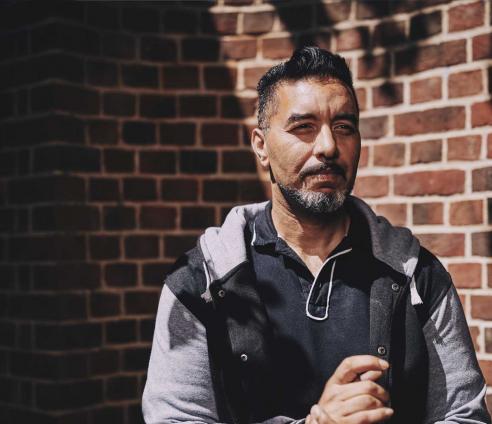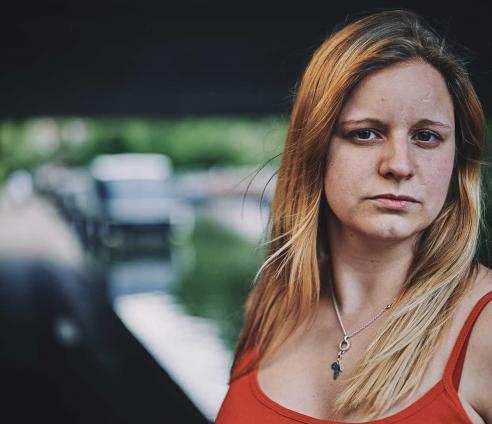Coronavirus - alcohol advice
This is a really difficult time and you might be noticing that you’re drinking more than usual to help you cope. It’s normal to look for ways to feel better at a time like this, but it’s also easy for your drinking to gradually get out of control.
We can help you cut down or stop drinking in a safe way. Please choose from the options below to read the right advice for you.
Am I dependent on alcohol?
If you’re worried you might be becoming dependent on alcohol, this is a useful guide. You are likely to be dependent if:
- You drink more than 15 units of alcohol every day (about half a 70cl bottle of vodka, 1.5 bottles of wine, 6 pints of regular strength beer, 3 cans of 9% super lager or 2 litres of strong cider.)
- You have had withdrawal symptoms in the past when cutting back or stopping drinking alcohol.
- You regularly drink alcohol soon after you get up to stop the shakes and/or sweating.
Important: if you are dependent on alcohol, do not stop drinking suddenly. The withdrawal symptoms can be serious and potentially fatal.
Advice for people who are dependent on alcohol
I want to cut down or stop drinking
Please speak to us - we can help you make a plan to cut down and/or stop drinking in a safe way.
If you are already getting support from one of our services, please give your worker a call or phone the main service number. You can find contact details for all our services via our ‘find a service’ page.
If you haven’t been to a service before, there’s lots of support available. See if we have a service near you via our ‘find a service’ page. If not, you can search for other services on the NHS website (England), NHS inform (Scotland) or NHS Direct Wales.
Important information for people who drink more than 30 units of alcohol a day
Do not stop drinking without speaking to a doctor or nurse from your local alcohol service if:
- You usually drink more than 30 units of alcohol a day
- You suffer from epilepsy or have had alcohol-related fits or delirium tremens (DTs) in the past.
30 units is about 1 bottle of vodka, 3 bottles of wine, 12 pints of normal strength beer, 7 cans of 9% super lager or 4 litres of strong cider.
Try and keep your drinking steady, without having heavy binges or days completely without alcohol.
Our doctors and nurses are available to support you. You can find contact details for all our services via our ‘find a service’ page.
Important: if you are dependent on alcohol, do not stop drinking suddenly. The withdrawal symptoms can be serious and potentially fatal.
What withdrawal symptoms might I notice when I start cutting down?
People often experience sweating, shaking, and feeling sick and anxious. These typically last around a week.
Withdrawal symptoms often peak on days 2 and 3. Try and make sure you have support – from your worker or a friend or family member – on these days.
If symptoms such as sweating, shaking or anxiety are very uncomfortable, or you are vomiting, you are probably reducing too quickly, and you may need to slow the reduction down.
Be aware that some symptoms of alcohol withdrawal might be the same as coronavirus symptoms. You can check to see if you have coronavirus symptoms on the NHS 111 website.
Serious symptoms to look out for
- If your symptoms get worse, such as severe shaking and heavy sweating
- Seizures (fits)
- Seeing, hearing or feeling things that aren’t there (hallucinations)
- Feeling confused about where you are, what time it is, or who you are with
- Problems with your coordination and feeling unsteady on your feet
If you get any of these more serious symptoms, or you notice a family member experiencing them, call 999 immediately or go to A&E.
Looking after your physical and mental health
Here are some tips that might help you while you’re cutting down:
- Stick to a sleep routine. Avoid using sleeping tablets.
- Pay attention to your diet - eat foods that have plenty of vitamin B1, like peas, fruit, eggs and shreddies and bran flakes cereal. Try soups if it’s hard to keep food down.
- Drink lots of water or tea (not coffee). Avoid energy drinks.
- Keep in touch with family and friends, and your alcohol worker if you have one.
What should I do if I can’t get hold of alcohol?
If you have a dependency, you might be worried about getting alcohol during the coronavirus pandemic. You might have underlying health conditions, or a disability. Maybe you don’t have enough money to buy alcohol right now.
It’s important to have a plan in place – this might include asking family or friends to buy alcohol for you, or arranging home delivery from a supermarket or off licence.
If you’re dependent on alcohol it’s important you don’t stop drinking suddenly. Pacing yourself and spacing out how much you’re drinking over a period of time can help you avoid this if you can’t get as much alcohol as usual.
You could alternate between alcoholic and soft drinks, or decide how to space out your drinks over the day – for example, morning, lunchtime and evening.
Advice for anyone who's worried about their drinking, or someone else's
If you think you might be drinking too much, but you are not dependent on alcohol, here is some advice to help you.
Am I drinking too much?
If you are regularly drinking more than 14 units of alcohol a week, you are drinking above the recommended alcohol guidelines. This means alcohol may be causing you harm.
14 units is equivalent to 6 pints of average-strength beer or 10 small glasses of low-strength wine. Check your weekly units here.
What are the signs I should cut down on my drinking?
There are lots of reasons you might want to take a look at your drinking habits, and you don’t have to be drinking every day for it to be an issue. Someone might have told you they’re concerned, or you might find it hard to stop drinking once you’ve started.
You might find that you are turning to alcohol whenever you’re bored, or drinking to help you cope with the challenges of childcare.
It can be hard to take that first step, but making changes can help you to be happier and healthier, and keep your family safe too.
How can I cut down?
Here are some things you can try:
- Start a drink diary. Every time you have a drink, write down what you’re drinking, how much you have, how you are feeling at the time and what the situation is. This will help you see patterns and make changes.
- Set yourself a weekly limit, and stick to it. Don’t stockpile alcohol, just buy the amount you need for the week.
- Choose at least three alcohol-free days a week – stick to the same days each week.
- Make yourself a rule for the earliest time you’ll have a drink – avoid drinking during the day.
- Don’t drink on an empty stomach. Always have something to eat first.
- Have a soft drink between each alcoholic one. This will help you pace yourself and make sure you’re not drinking more alcohol because you’re thirsty.
- If you start having cravings, distract yourself for a few minutes. Meditation apps and videos are good distractions.
If you have children, always wait till they’ve gone to bed before you have a drink. It can be scary for children when a parent has been drinking. If there are two of you at home, make sure one of you always stays sober.
You can also look at the links and helplines below for more support.
What should I do if I’m worried about someone’s drinking?
Talking is one of the most important ways you can help someone with an alcohol problem. It can help both of you understand what they’re going through, and encourage them to take positive steps towards being safer and healthier.
Here is some advice on how to talk to someone about their drinking.
It's important to look after yourself too - it's not selfish. To support someone you love, you need to make sure you are taking care of yourself too.
Information for people who use our services
Can I go to my service?
Our workers are still here for you. The best way to get support and information is by calling your worker or the main phone number for your service. You can also speak to a member of our online team for advice.
We'll be using video conferencing and phone calls as much as possible to help you keep in contact.
Please don’t come to the service or pharmacy if you think you might have symptoms of coronavirus.
What if I want to cut down or stop drinking? Can I have a detox?
We can still support you to reach your goals. Please give your worker or service a call and we can help you create a plan.
Please don’t try and cut down or stop drinking on your own – speak to us first so we can help you do it safely. If you are dependent on alcohol, do not stop drinking suddenly.
Can I still get medication to help with withdrawal symptoms?
If you have been prescribed medication to help you manage alcohol withdrawal symptoms, you will still be able to get this from your local pharmacy.
If necessary, someone can collect your medication for you. If you don’t have anyone that can do this, if possible your worker will collect your medication and deliver it to you.
The pharmacist or nurse will also give you advice on how to store your medication safely and keep any children in your house safe. They will give you a safe storage box if possible.
Other organisations that can help
For you
-
Alcohol Change UK
Coronavirus information and advice hub.
-
Drinkline
National alcohol helpline. Free and confidential. Call 0300 123 1110 (weekdays 9am - 8pm, weekends 11am - 4pm).
-
Breaking Free Online access code
Free, online treatment and recovery program. Please message us via our chat service to get an access code.
-
NHS website - service finder
Find services in England.
-
NHS Inform
Find services in Scotland.
-
NHS Direct Wales
Find services in Wales.
-
Alcoholics Anonymous
Helpline open 10am - 10pm every day. Call 0800 917 7650. Online meetings are available.
-
Drinkaware Drinkchat
Online messaging service. Free, confidential advice from trained advisors.
-
Soberistas
A safe, online space where you can meet people who are working towards an alcohol-free life. Speak to our online chat team for a free subscription.

For family members and children
-
Nacoa coronavirus helpline
Support for anyone affected by a parent's drinking. Call 0800 358 3456 free (Monday - Saturday 2pm - 7pm) or email [email protected].
-
Al-Anon
Support for families and friends of people with an alcohol addiction. Helpline available 10am - 10pm every day. Call 0800 0086 811.
-
Scottish Families Affected by Alcohol and Drugs
Call 08080 10 10 11 (Monday - Friday 9am - 11pm, call-back service on weekends), email [email protected] or message an advisor online.
-
Childline 1-2-1 chat
Message a counsellor online about whatever's worrying you. Or call free on 0800 1111 (open every day 9am - 12am midnight).

